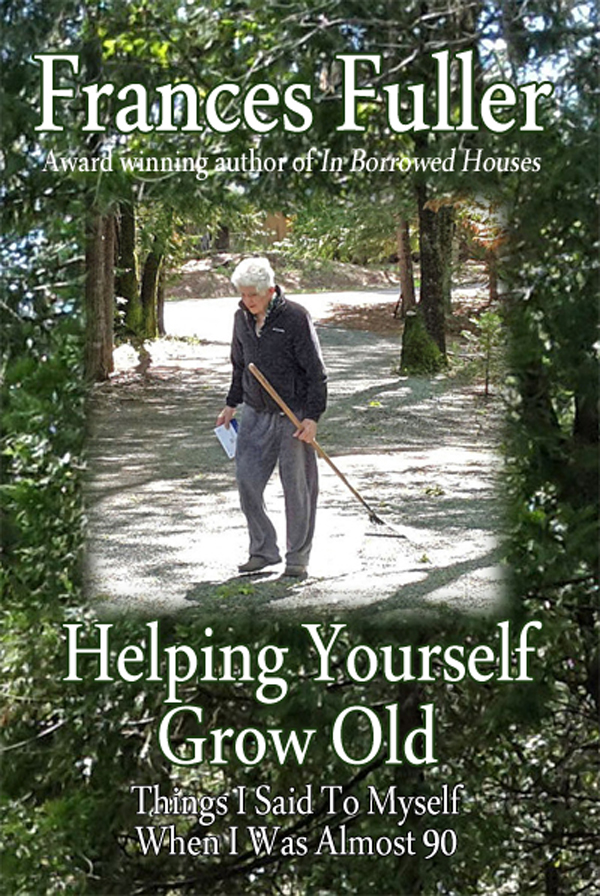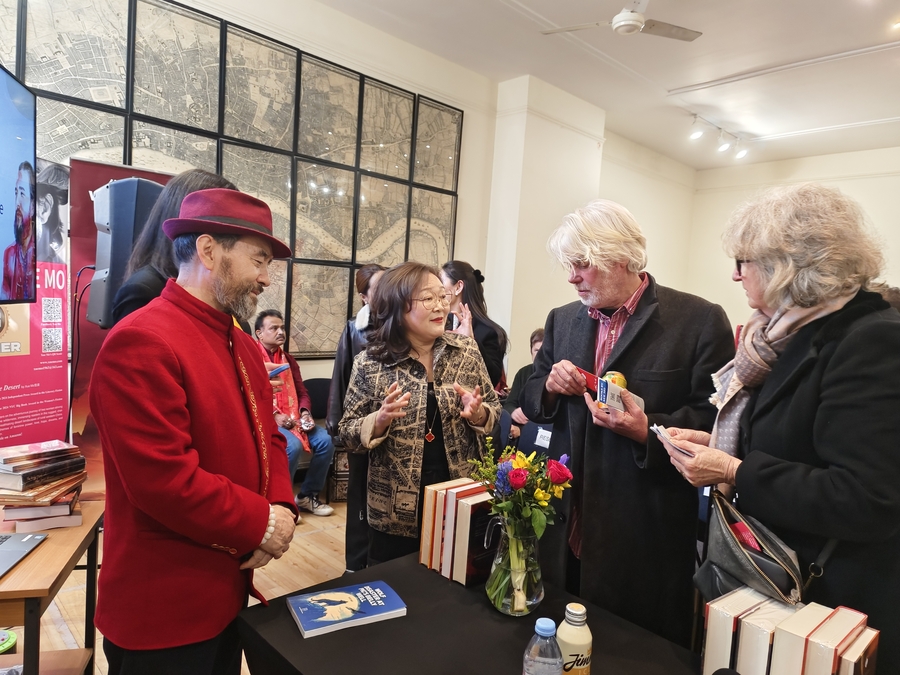Best-selling author Frances Fuller offers an insider’s view of assisted living and a unique outlook on aging, based on her own experience. Her insights are penetrating and deal with issues that many seniors and their families are concerned about.
WILMINGTON, NC, August 12, 2024 /24-7PressRelease/ — Best-selling author Frances Fuller offers an insider’s view of assisted living and a unique outlook on aging, based on her own experience. Her insights are penetrating and deal with issues that many seniors and their families are concerned about.
Most of us look forward with great anticipation to the day when we can finally retire. We will be free to sit back, put our feet up and – do what? Many of us have defined our identity by the work we do. What happens when that is gone?
One of the biggest fears that people have about growing older is the fear of becoming obsolete. This fear is not unfounded, as society often places a high value on productivity and usefulness, and older individuals may feel as though they are no longer able to contribute in meaningful ways. Award-winning writer Frances Fuller, author of the bestselling book on aging, ‘Helping Yourself Grow Old’, recently addressed this issue in a post on her site titled, ‘Will I Still Be Useful’. In that post she wrote in part:
Debbie, a neighbor of mine fell the other day, in front of her own door, with her little dog on a leash. Joyce, who lives just around the corner, heard the crash and the barking and ran to investigate. Seeing the gash on Debbie’s head, Joyce pushed an emergency button and help was on the way.
That reminds me of something important to discuss.
Elderly Americans in retirement homes are people who have worked hard most of their lives. They have run institutions, built houses, written books, nursed the sick, kept the peace, governed cities, fought wars, cooked meals, repaired what was broken, made music, led choirs, preached sermons, taught algebra, pulled teeth, etc., etc., all while raising children and sending them to college.
They don’t know much about idleness.
Thinking about going to a retirement home, they sometimes wonder: what will I do there all day every day? Will I be of any use to anybody?
There is a bit of ambiguity in their feelings. They don’t want to keep office hours or hang out a shingle, but neither are they ready to forget what they know or stop being citizens and neighbors.
The most interesting thing I have discovered about retirement homes is how many of the good things that happen there are created or proposed and even executed by the residents. And the best administration, at least one that the residents really like, is one that listens to the residents and enables their ideas.
Here are some of the things I know that the residents of one retirement home do to contribute to the good life there:
Welcome newcomers and help them become part of the community
Read to a resident who is nearly blind
Visit the sick
Organize and lead a book club
Keep the library growing and organized
Teach other residents to read music
Teach people to make better use of their computers and phones
Make beautiful and useful objects from the wood of a tree that fell
Paint pictures that hang in the halls
Share food they made in their kitchen
Comfort the bereaved
Buy gifts for poor people in the city
Collect school supplies for disadvantaged children in the area
Plant gardens and share the vegetables
Serve as officers of resident organizations
Sing in the community choir
Accept leadership positions in a local church
Lead games: charades, password, Bingo
Shop for someone who is not able to walk through a store
Walk the dog of another resident who is ill
The possibilities seem endless. After all, a home for the elderly is a neighborhood, in fact, a potentially needy neighborhood, a community of people whose common sharing makes life better for all.
The full text of the blog is available at https://www.inborrowedhouseslebanon.com/will-i-still-be-useful/ .
Frances Fuller’s book is unique among the many books on aging, because it is personal, while most such books are written from an academic point of view. Most are penned by sociologists, doctors, gerontologists, even the CEO of AARP, and one by a Catholic nun, Joan Chittister. Chittister’s book, ‘The Gift of Years’ is beautifully written, focusing on spiritual values and finding meaning in life. Chittister admits in the preface that she was only 70, which is the front edge of aging, and her book is somewhat abstract.
Atul Gawande’s book, ‘On Being Mortal’, relates medicine and old age, It enjoys high Amazon rankings, in the category of “the sociology of aging.” It contains a great deal of valuable scientific information and shows understanding of the physical and emotional needs of the elderly.
Frances Fuller’s book, ‘Helping Yourself Grow Old, Things I Said To Myself When I Was Almost Ninety’, is an up-close and very personal encounter with aging. It is an uncontrived and firsthand look at her own daily experiences: wrestling with physical limitations, grief, loneliness, fears, and the decisions she has made about how to cope with these and keep becoming a better person. She faces regrets and the need to forgive herself and others and is determined to live in a way that blesses her children and grandchildren.
Frances deals with many common, universal but sometimes private issues in an open, conversational tone. Her confessions and decisions invite self-searching and discussion. She tries to make sense of her own past and to understand her responsibility to younger generations. In the process she shares her daily life, enriched with memories from her fascinating experiences. Her stories and her voice — fresh, honest, irresistible — keep the reader eager for more. The end result is a book that helps create a detailed map through the challenging terrain of old age.
The result of this intimate narrative is that readers laugh, cry and identify with her mistakes and problems. Reviewers have called the book, “unique,” “honest,” “witty,” “poignant,” “challenging” and “life-changing.”
For these reasons it is a book unlike any other book on aging you will ever read. The book can serve as a primer on what lies in store for all of us, from someone who is working through many of these issues. While the book is a perfect fit for book clubs, there are many other individuals and groups who could benefit from the information and ideas in the book:
Those approaching retirement
People who are currently retired
Children of aging parents
Those who have lost a spouse
Retirement community discussion groups
Counselors
Educators
Life coaches
Church groups (men and women)
and a host of others. For group discussions, Fuller has made a set of discussion questions available at her website at http://www.FrancesFullerAuthor.com.
Readers have lavished praise on the new book. One Amazon review stated, “I find myself thinking,’I need to read this again and take notes!’ It’s full of wisdom, humor, and grace. I also have committed to rereading it annually – it’s that important!” Another said, “There is valuable life experience in this book. Helping Yourself Grow Old is truly is a book for all ages, and one not to be missed.” Another stated, “Beautifully written book telling timeless truths, for both the old and the young. Highly recommend this book for anyone who loves to laugh, cry, and learn wisdom from someone who has lived so much life.”
Frances’ prior work, ‘In Borrowed Houses’, has taken three industry awards and has achieved Bestseller status. Frances Fuller was the Grand Prize winner in the 2015 ’50 Great Writers You Should Be Reading’ Book Awards. It received the bronze medal for memoir in the Illumination Book Awards in 2014. Northern California Publishers and Authors annually gives awards for literature produced by residents of the area. In 2015 ‘In Borrowed Houses’ received two prizes: Best Non-fiction and Best Cover.
Critics have also praised ‘In Borrowed Houses.’ A judge in the 22nd Annual Writer’s Digest Self-Published Book Awards called ‘In Borrowed Houses’ ” . . a well written book full of compassion . . . a captivating story . . . “. Another reviewer described the book as “Wise, honest, sensitive, funny, heart-wrenching . . .”. Colin Chapman, lecturer in Islamic Studies at the Near East School of Theology in Beirut said, ” . . . western Christians and Middle Eastern Christians need to read this story…full of remarkable perceptiveness and genuine hope.”
Frances has shared stories about her life in an interview with Women Over 70, and a recording is available on their Facebook page.
Frances Fuller is available for media interviews and can be reached using the information below or by email at frances0516@att.net. The full text of her latest article is available at her website. Fuller’s book is available at Amazon and other book retailers. A free ebook sample from ‘In Borrowed Houses’ is available at http://www.payhip.com/francesfuller. Frances Fuller also blogs on other issues relating to the Middle East on her website at http://www.inborrowedhouseslebanon.com.
About Frances Fuller:
Frances Fuller spent thirty years in the violent Middle East and for twenty-four of those years was the director of a Christian publishing program with offices in Lebanon. While leading the development of spiritual books in the Arabic language, she survived long years of civil war and invasions.
—
For the original version of this press release, please visit 24-7PressRelease.com here






